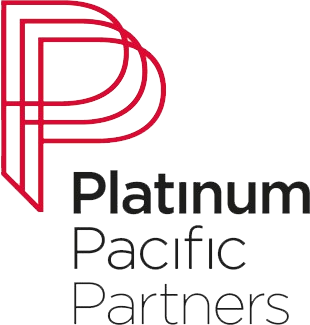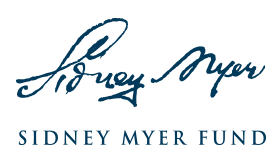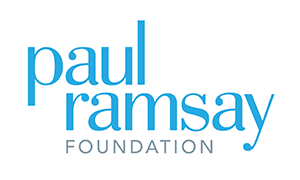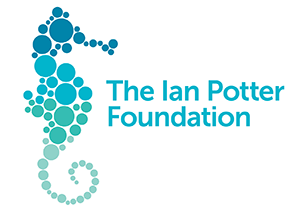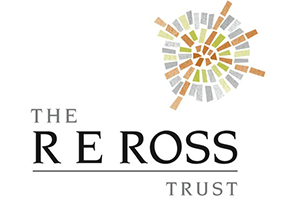Interactive
Timeline
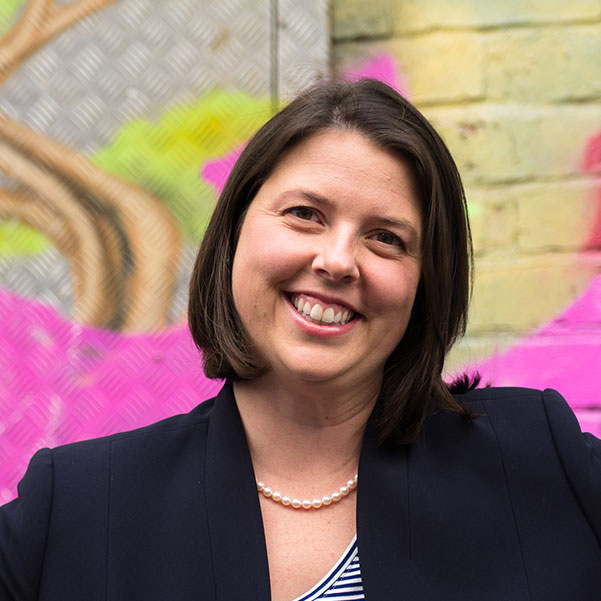
Message from Melodie
This year, Teach For Australia celebrates ten years. This milestone is an occasion to think back on where we came from and what Teach For Australia has achieved in the past decade, but it’s also a poignant moment to look towards the future and ask ourselves: What will it take from all of us to narrow the gap so that all children, regardless of background, attain an excellent education?
When I look back on the initial conversations I had over ten years ago in setting up TFA and articulating our contribution towards educational equity, it strikes me how incredibly far we’ve already come. Then, the big question people kept asking was, “Why would high achievers and particularly recent graduates ever choose teaching?”
This was part of the disbelief that Teach For Australia had to overcome. Now, as we continue to recruit high-calibre graduates, we are also attracting people already established in their careers to share their skills in classrooms where they are most needed. We can be proud that over the past decade, Teach For Australia has received over 11,000 applications from diverse, motivated and intelligent individuals who wanted to make a difference in the lives of Australia’s young people through teaching. It’s a testament to how far we’ve come in breaking down those initial barriers, in improving the status of the teaching profession, and bringing an increased focus on the need for educational equity to Australia.
We’re no longer an unproven idea, we’re an established movement – and we continue to disrupt the way Australia approaches this wicked problem of educational disadvantage.
Two independent evaluations have shown this impact. We’re no longer an unproven idea, we’re an established movement – and we continue to disrupt the way Australia approaches this wicked problem of educational disadvantage.
But there’s so much more to do. Ten years isn’t long enough to ‘fix’ the problem, this is a lifelong commitment. We need a richer ecosystem of education actors that aren’t recycling the same old ideas – we need to break new ground. And we can’t lose sight of why we’re all in this work. Up till now, adults have been making decisions for kids – but we need more young voices and student leadership guiding what the system should look like. We need to be flexible and we need to be creative. We need a new level of commitment to the ultimate reason why we’re here: kids deserve better than we’re currently giving them.
Over the next ten years, we will seek to better galvanise our community – of Associates, Fellows and Alumni and all those that intersect with and share our mission – to ask what it will take to narrow the education gap, and take action.

2010
2010
The Australian Government supports Teach For Australia through a multi-cohort agreement.
The first cohort of Associates begin teaching in Victoria, the first state to partner with Teach For Australia.
After establishing a partnership with the University of Melbourne in 2009, Associates begin their Postgraduate Diploma in Teaching through the university.
Achieving educational equity:
What the research tells us
Research by former ANU economic professor and current politician Andrew Leigh MP finds that students taught by high performing teachers (those in the top decile of all teachers) learn as much in six months as what teachers in the bottom decile accomplish in a full year.
Source Leigh, A. (2010). Estimating teacher effectiveness from two-year changes in students’ test scores. Economics of Education Review, 29, 480-488.
Partner Spotlight
We're grateful to our partners for their support - none of our work would be possible without you.
Learn More
“The 45 Teach for Australia apprentices parachuted into needy schools around Victoria at the start of the year had a lot to prove – and with one semester behind them, most have passed the judgment of students, parents and peers with flying colours.”
Viveka Simpson is working in a youth training program in conservation and environmental work and thinks, “At 18 years old, how can you be on a path that is not your choice at all – a path that’s been dictated to you?” From this moment, empowering young people earlier in their lives becomes Viveka’s focus.

From youth worker to Teach For Australia
In 2010, Viveka Simpson (Cohort 2012) was living in Warrnambool, working with the National Green Jobs Corps (NGJC), offering unemployed young people a six-month training program. The program offered accredited, on-the-job training to prepare young Australians for work in emerging green and climate change industries.
“It was really difficult to get engagement from the participants and to get them to feel any sense of achievement,” Viveka recalls. “My days consisted of driving to everyone’s houses to get them out of bed, and get them to come out and do the work, then dropping them home.”
“It got me thinking: how can you be only 18 and not have choices available to you? You’ve lost the ability to make choices for yourself because the access to your benefits hinges on your participation in this program, and this isn’t a program that you are particularly interested in.”
Viveka had a sense that she wanted to work with younger people and empower them sooner. “What happened up to this point? I’m working with people who are 18 to 20 years old, but at this stage, it’s probably too late. What happens when you work with students who are 13 to 17, or 10 to 13? Where is the crucial point that you can have those conversations to empower students to start making better choices?”
She’d first heard of the Leadership Development Program through her mother-in-law who happened to be Principal at a Teach For Australia Partner School that had just taken on Associates for the first time.
Initially, Viveka thought she would never become a teacher. “Both of my parents were teachers and my dad always said, ‘Be more than a teacher,’” says Viveka. However, constantly surrounded by people who were making a difference in young people’s lives, it was inevitable that she would follow in their footsteps. “While all of the main influences around me were teachers, I do still truly believe that it was the work I’d done previously that made me want to explore the earlier experiences of young people before they got to that point.”
Viveka taught science at Manor Lakes P-12 College for five years, and now works at Teach For Australia as a Teaching and Leadership Advisor, helping to coach new Associates as they fine-tune their teaching practice.
“I really enjoy the engaged discussions and buy in that Associates have into what is best practice education, what that looks like and how we can help achieve that.”
Back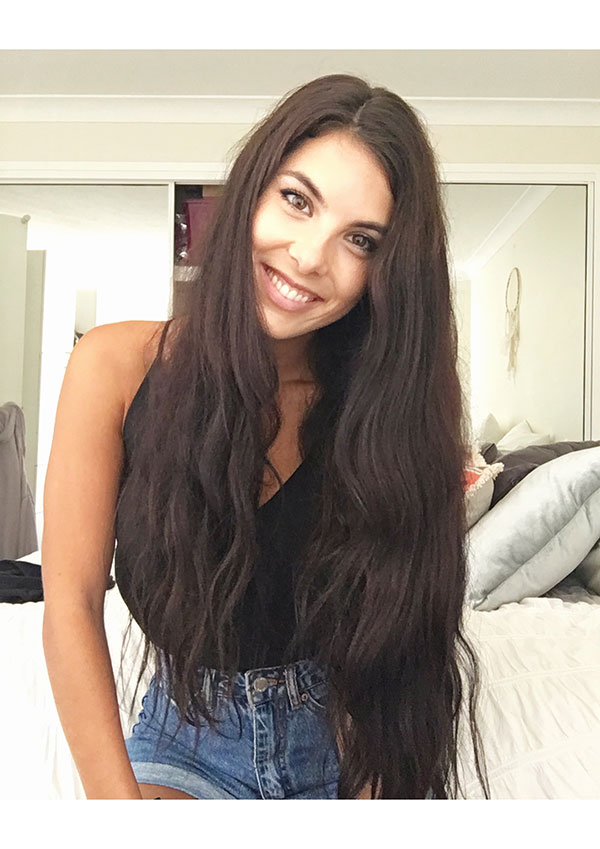
Getting down to business
Sianai Hadley grew up in Horsham, a regional city in Victoria. In 2011, she was enrolled in Mr Manchikanti’s (Cohort 2011) Business Management class. It wasn’t anything she thought she necessarily had a passion for – she chose it “because a group of my friends were doing it.”
One of the first things that struck her was how young her teacher looked. “I thought Srini and my friends were the same age,” Sianai remembers – and she wasn’t too far off. After finishing university, Mr Manchikanti was back in high school, but this time at the front of the classroom as an Associate through Teach For Australia.
“It was my first year of teaching Year 12s,” which Mr Manchikanti says can be a nerve-wracking experience. It’s a time when students are thinking about their futures beyond high school, and especially as a young teacher, the age difference isn’t very noticeable in the grand scheme of things. With high school still fresh in his memory, Mr Manchikanti was able to quickly empathise with his students’ experience.
“They would always come back after a Sunday with stories from their weekends and I’d have to close my ears and pretend I wasn’t listening,” he laughs. Whatever those stories were, Sianai shrugged them off, remembering that weekends in the country “were so boring, that you just do weird, random things.”
That’s why it was so surprising when Mr Manchikanti called for an extra study session at 8am on a Sunday and the students actually showed up. “I promised everyone Macca’s. I do remember people coming relatively bleary-eyed and possibly with not too much sleep – but they actually sat still for two and a half hours, writing a full-on practice exam.”

“Srini was definitely my favourite teacher,” Sianai says. “He actually cared and wanted us to do well. Being a public school in a country town, it’s not really like that in every single classroom.”
Now, Sianai lives on the Gold Coast. “I took a year to just work and save some money. I went to university and did my undergrad in Psychological Science. Now I’m working in disability services as a Recreation Support Worker.”
In the next ten years, Sianai says, “I would like to see a lot more of the world. I would like to further my career, and do more study towards autism behaviour therapy. In general, I’d like to be happy and comfortable.”
Mr Manchikanti agrees. In ten years, “happy and comfortable would be good.” He’s also considering undertaking more study. At the moment, he is a consultant working in the education sector with governments, schools and universities. “I do miss teaching, though.”
Back2011
2011
Teach For Australia expands into the Australian Capital Territory.
Partner Spotlight
Boston Consulting Group and Corrs Chambers Westgarth join as Founding Partners.
Learn More
Achieving educational equity:
What the research tells us
The Australian Academy of Science finds that only half of Year 12 students are studying science, compared to nine out of 10 in the early 1990s.
Source Australian Academy of Science (authors Goodrum, D., Druhan, A. & Abbs, J.). (2011). The Status and Quality of Year 11 and 12 Science in Australian Schools. Canberra, Australia: Australian Academy of Science.
Sianai remembers her Business Management teacher, Srini Manchikanti fondly. “He actually cared and wanted us to do well. Being a public school in a country town, it’s not really like that in every single classroom.”
18 STEM specialists join the 2011 Cohort, passing up jobs as Research Fellows, Project Engineers, Environmental Scientists and Policy Advisers, as well as top engineering graduate programs and fully funded international PhDs to dedicate themselves to addressing educational disadvantage in Australia.
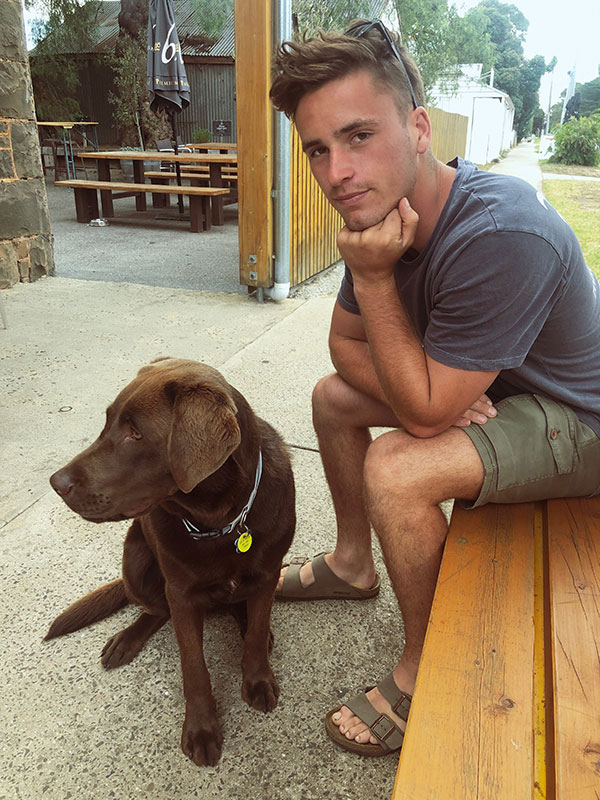
A rough start pays off
While most people can remember a great teacher, some can even remember the exact day thatteacher changed their lives.
In 2012, Kyle O’Connor was taking maths with Michael Briggs-Miller (Cohort 2010) at Horsham College in regional Victoria. Briggsy, as he’s affectionately known, had moved to Horsham from Melbourne and was in his third year of teaching. The two didn’t hit it off straight away.
“I had Briggsy for Year 8 maths, if I remember correctly. I hated Briggsy at the start. I didn’t really care about school, and I didn’t really care about anyone else. I just wanted to be out of there.”
The day that sticks with Kyle started with an unimpressive school assembly. “We had a special guest come in who was an old basketballer from America,” he remembers. “He spoke about his life story and the mistakes he had made but it never actually went anywhere.” Briggsy remembers it too. “We had a motivational group come out, and give this big, flashy presentation about someone who had done something. I looked around the room and you could see the kids' faces. It was going way over their heads.”
The kids got back to class, and the maths lesson was put on hold. “When we went back to class,” Kyle says, and “Briggsy told everyone about his life story, and the people around him who had made mistakes. You could hear a pin drop. It was an eye-opener.”
“What happened to him was sort of what was happening in my life, in a way. I was starting to go down a bad track.” As young people in a country town, Kyle says “we were all focused on footy at the time. Briggsy had people around him getting drafted. What he told us that day really broadened our ideas of education and putting in effort. It was all about having respect and making good decisions in your life. There is more to life than just coming to school and mucking around, you actually have to pull your head in to try and succeed.”
From that moment, Kyle saw Briggsy – and the purpose of school – in a whole new light.
Academically, Briggsy wanted to see Kyle try harder. “Maths always came quite naturally to him a little bit. He could put in 5% effort and you would get 85% out. What I was really working on with him over the course of the year was saying – that’s actually not good enough. You need to put in more.”
“I saw a bit of myself in him. I was able to tap into a few things and get him to see that you can fight the fight if you want, but you’re only hurting yourself.” Briggsy’s methods seemed to be working. “It seemed like less things were coming through the Year 8 office with Kyle’s name on it.”
In Year 10, Kyle received a football scholarship and left Horsham to attend boarding school in Ballarat. Now, he’s studying a Bachelor of Commerce at Deakin University in Geelong.
Back2012
2012
Teach For Australia begins partnering with the Northern Territory, placing six Associates in Tennant Creek and Katherine.
Teach For Australia receives formal recognition and certification as a charity, allowing the addition of philanthropic funding.
Teach For Australia’s first cohort graduates and becomes Alumni.
100th Associate joins the program.
Achieving educational equity:
What the research tells us
The Bill and Melinda Gates Foundation publish findings from the Measures of Effective Teaching project, a three-year study designed to determine how to best identify and promote great teaching. Their research finds that student perception data is a critical source of evidence on the quality of teaching and learning in individual classrooms, and has been correlated with student academic achievement. In the years immediately following the release of this report, Teach For Australia introduces student perception surveying for Associates, to inform their teaching practice.
Source Bill & Melinda Gates Foundation. (2012). Asking students about teaching: student perception surveys and their implementation. Retrieved from http://k12education.gatesfoundation.org/download/?Num=2504&filename=Asking_Students_Practitioner_Brief.pdf
Partner Spotlight
Teach For Australia establishes new partnership with Social Ventures Australia.
Learn More
Kyle remembers the day his maths teacher, Michael Briggs-Miller, changed his path. “There is more to life than just coming to school and mucking around, you actually have to pull your head in to try and succeed.”
“[S]he could go into a bank, make a huge pile of cash and spend a lifetime counting it - or she could do as she was last week doing, and help a confused 11-year-old crack the code to a column of numbers. That's called counting your blessings and to Iggy [Igraine Ridley-Smith, Cohort 2011], it's a no-brainer.”
Iwan Walters is awarded the prestigious John Monash Scholarship to further his study at Oxford University: “I was always interested in teaching as a means of reciprocating. I wanted to make the most of the opportunities that I was given to ensure that the system as a whole could impart those more widely, especially in context of educational disadvantage.”
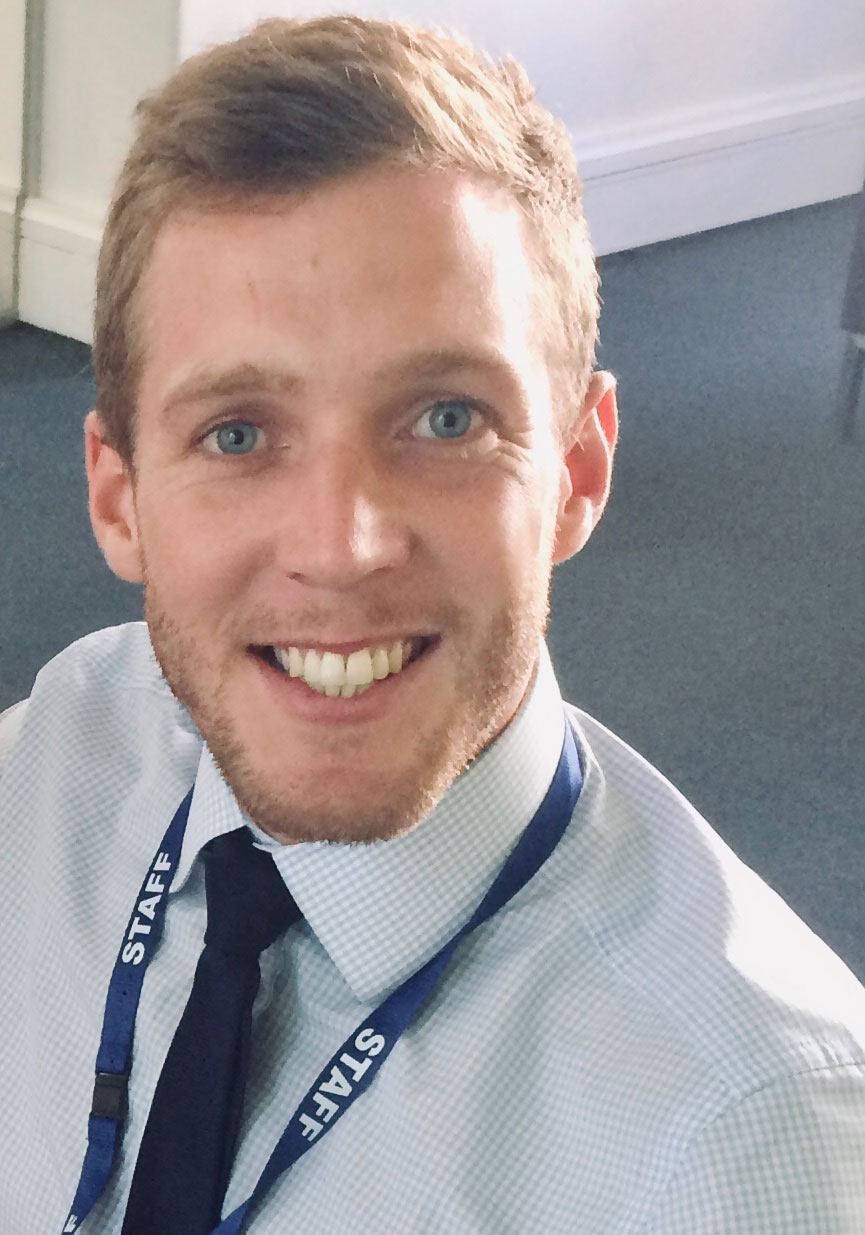
Classroom experience inspires research into education policy at Oxford
Iwan Walters (Cohort 2010) was part of Teach For Australia’s first cohort of Associates to venture into Victorian schools in 2010. Armed with a Bachelor of Arts with first-class Honours in History from the University of Melbourne, Iwan was looking for his next step.
“I was looking to what came next and had always been interested in teaching both as a vocation and a means of reciprocating in the context of education. I wanted to make the most of the opportunities that I was given to ensure that the system as a whole could impact those more widely, especially in context of educational disadvantage,” he recalls.
Having just completed his honours degree, Iwan jumped at the opportunity to be part of the early phase of something that had great potential –the Leadership Development Program.
“I was really excited about the opportunity to get into the classroom and have a different experience to leverage the skills and experience that I had been acquiring – not just at uni but in a broader sweep and to apply those in a really worthwhile way.”
Two days after submitting his honours project, Iwan found himself immersed in Teach For Australia’s Initial Intensive. Once completing the Initial Intensive, Iwan hit the ground running at Stawell Secondary College, a regional school located in the Grampians.
Iwan reflects on one of his first experiences in Stawell, “Before I’d even spent a day in the classroom, I’dbeen roped in to coach-and-play cricket. It turns out I was playing with and coaching against some of the kids who were in my Year 9 class. It just emphasised the importance of strong, mutually trusting relationships, but it was also enjoyable and nice to know that I was getting to be a part of the community.”
Throughout the two-year program, Iwan taught a range of subjects across different of year levels.
“It was a huge spread across age groups and subject areas, each of which came with their own challenges and rewards. It was wonderful to be able to shape the students as they arrived at secondary school and continue to embed high expectations and really give them the best,” he recalls.
At the back end of 2011, Iwan was awarded a John Monash Scholarship – a postgraduate scholarship awarded to outstanding Australians with leadership potential looking to study overseas. The following year, he began the scholarship at Oxford University.
“The rationale for applying for the scholarship was as a means to pursue further study, and Oxford probably has the greatest depth of research around economic history. I positioned my research around looking at the economics of education and the impact of policy change on economic opportunity, with the specific context of secondary school reform.”
During his time at Oxford, Iwan completed a Master of Philosophy in Economic and Social History, and a Master of Public Policy at Oxford's Blavatnik School of Government. The research at Oxford focused on the economics of education and was particularly concerned with improving access to higher education from socially and economically disadvantaged areas.
Back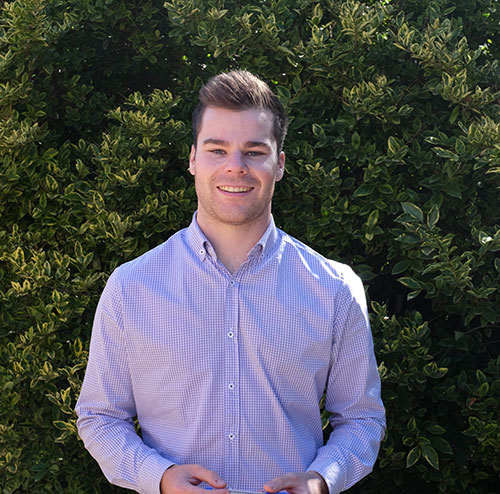
Do you respect wood?
In 2013, Matt Bray was in his last year of high school at Horsham College.
Daniel Marget (Cohort 2013), a first-year teacher at the school and the Public Speaking Coordinator, had put a call out for students to compete in the local Lions Clubs’ Junior Public Speaking Contest.
“I’d never done public speaking before,” Matt says. But he and his friend Greg went over to the junior side of the school and gave it a crack. That first day, the students had to brainstorm what they were passionate about and give a practice speech – just five minutes. “There were a whole lot of Year 8s running around the corridor, making noise. I just could not do it at all – I couldn’t rehearse, I couldn’t talk about it. I didn’t have a reference point, and I didn’t know how to make the whole five minutes flow and how to structure it with a start and end.”
I really remember you could see parents of these other competitors mouthing the speeches that their child was saying because they had to memorise it themselves, and they’d practiced it so many times
Mr Marget helped the students brainstorm, trying to pinpoint their particular passions that would make the five minutes seem like not even enough time.
Mr Marget had never met Matt before, and would never formally be Matt’s teacher. That day, talking with Matt at that first practice session, and it became clear that Matt had a passion for woodwork. Larry David’s line “Do you respect wood?” from satirical comedy Curb Your Enthusiasm came to mind. In the episode, Larry whinges about somebody putting a drink down on a very nice wooden table without a coaster, which leaves a watermark.
“Do you respect wood?” was Matt’s sentiment about the status of the world, exactly.
“I thought I could talk about woodwork for hours with people and bore them out of their brains,” Matt said. But instead of boring people for hours, Matt’s speech progressed him from the regional competition, on to district, and then state.
Talking to Matt more than five years after he’s made his speech, he can still bring that passion to life in conversation. “We’re not using traditional, timber joinery techniques anymore,” he explains. “Everything’s IKEA or thrown together without too much care at all. The unsustainability of it – this is a throwaway society.”
Hearing Matt talk about this issue again, his instructor Mr Marget is brought back to those rounds of competitions. “Matt’s speech was really unique. We never heard the same thing twice. He didn’t have it on cue cards, he didn’t memorise it from a piece of paper. He said the same thing but it was very much ad-libbed, very conversational. He was always walking around the front stage, really interacting with the audience.”
“I really remember you could see parents of these other competitors mouthing the speeches that their child was saying because they had to memorise it themselves, and they’d practiced it so many times. That was what set Matt apart because he demonstrated that the most effective way to speak publicly is to connect with your audience. So not only did he speak about a topic that he was incredibly passionate about, he did it in a way that wasn’t quite obviously rehearsed. It felt like it really came from the heart. He did that so well time and time again, and I think that’s why he kept moving through these different stages.”
Mr Marget travelled with Matt around Victoria for the competitions and the whole experience has stuck with them both – even six years later. Matt remembers fondly, “He dedicated his time, he stayed overnights across different places across the state – and I wasn’t even his student. That’s a testament to him. He’s probably one of the more influential teachers that I’ve had. Dan completely treated me as an adult. When you’re going through school at 18, you’re going through things like ‘where do I want to be from now, where do I see myself in five years, what am I going to do when I leave school?’ You need the side of guidance that isn’t strictly academic.” For Matt, Mr Marget was a mentor at a time when he needed guidance.
After graduating high school, Matt is now doing a double degree in Business and Commerce, majoring in management and commercial law.
Dan Marget is currently teaching at Werribee Secondary College. “I have so many fond memories of my time in Horsham in and out of the classroom, but I don’t think any of them really rank as highly as that experience did. No one had succeeded to the extent that he had in this kind of thing at our school - he was up against some of the highest of high, private school, super-academic kids and he just showed them up time and time again. When he won through to that state final, it was just incredible.”
Back2013
2013
The Australian Government announces a multi-cohort agreement with Teach For Australia, thus continuing its support of the program.
Partner Spotlight
Teach For Australia and Platinum Pacific Partners join together.
Learn More
Achieving educational equity:
What the research tells us
The Organisation for Economic Cooperation and Development’s Program for International Student Assessment (PISA) results find students from low income households are almost three years behind in school than those from high income households.
Source Australian Council for Educational Research (ACER) (authors Thomson, S., De Bortoli, L. & Buckley, S). (2013). PISA 2012: How Australia measures up. Melbourne, Australia: ACER.
In his final year of high school, Matt realises his talent for public speaking. Inspired by a simple, cynical joke, and a dedicated teacher, Matt truly finds himself at Horsham College.
Justin’s maths class had a wide spread of ability: “I had one student learning how addition works sitting next to another student learning quadratic factorisation – everyone else was somewhere in between, and my job was to prepare them all for the fractions test on Tuesday.” So he rolled up his sleeves, and figured out a way to teach maths at each student’s point of need.

From physicist to ed-tech founder
Before being accepted into Teach For Australia’s Leadership Development Program, Justin Matthys (Cohort 2011) had just completed his Master’s degree in physics and was offered a full scholarship to continue on with a PhD with an opportunity to study in both Melbourne and Paris. Instead, Justin decided that he wanted to give back with an acute awareness of how important education was.
“When I entered the Teach For Australia program, it was to the shock of my physics professors who were expecting me to continue my Masters research to PhD level on a full scholarship,” Justin says upon reflecting on his decision to enter the classroom.
After completing the Leadership Development Program in 2012, Justin along with fellow Teach For Australia Associate Richard Wilson, developed the idea of Maths Pathway – a Learning and Teaching Model that supports students along an individual pathway to build a deep appreciation and knowledge of mathematics.
I had a sense that the education system was not working perfectly yet, that there were things in there that needed to be changed, problems that needed to be solved.
“It was a side project that got a bit out of hand,” says Justin. “The genesis of the idea came from my first year of teaching.” Justin’s class had a wide spread of ability: “I had one student learning how addition works sitting next to another student learning quadratic factorisation – everyone else was somewhere in between, and my job was to prepare them all for the fractions test on Tuesday.”
“I really cared deeply about the students understanding mathematics properly, but it was very clear that I wouldn’t be able to build understanding under the lock-step system, where everyone has to learn the same thing at the same time, and be assessed on the same thing.”
Justin had a close look at the curriculum – and realised that the curriculum explicitly said to teach students at their point of need. So Justin rolled up his sleeves and tried to find a way to make that happen: “In my second year, I tried out a whole bunch of stuff using Excel, macros and emails and had different students learning different mathematics at the same time, and being tested on different things.” The careful coordination was a massive amount of work, “but it was phenomenal for the kids,” Justin says. Every student was making progress in his class, and they were feeling successful about themselves: Justin remembers overhearing a Year 10 student say, “Imagine if we had Mr Matthys since we were in Year 7, we’d be geniuses by now!’”
“I chatted with another Teach For Australia teacher, Richard Wilson, and we started this side project by writing a basic web application. It got to the point where halfway through the next year, it was showing so much promise, we decided to work on it full time without pay for 18 months, working out of a shed in his backyard.” Maths Pathway was born.
The Maths Pathway program supports teachers to have a greater impact in the classroom through a Learning and Teaching Model that delivers truly engaging and personalised learning for each student. To date, the program has been put into effect in 170 schools across every state and territory in Australia, dramatically changing the learning outcomes of more than 25,000 students.
Justin believes his time with Teach For Australia absolutely influenced the path that he has taken since leaving the classroom.
“The Teach For Australia experience exposed me to the realities of the classroom in a way that a more traditional teacher pathway wouldn’t have. Working for a couple of years in a disadvantaged school is really eye opening," says Justin. “Without Teach For Australia, I definitely wouldn’t be where I am today – especially having not met my co-founder either, neither one of us could have done this alone.”
Now as Maths Pathway continues to grow, Justin is looking forward to continuing to develop its legacy. Already, the individualised learning platform has been proven to double student learning.
“What we’re seeing today with Maths Pathway is that if you can mobilise a community of teachers together where they are all on the same page and working to a common goal then you can get these amazing economies of scale that don’t work otherwise.
“I see myself in ten years still trying to find ways to help schools work together, learn from each other, not have to reinvent the wheel over and over, develop and integrate toward best practice in a cohesive, coherent way,” says Justin.
Learn more about Maths Pathway here.
Back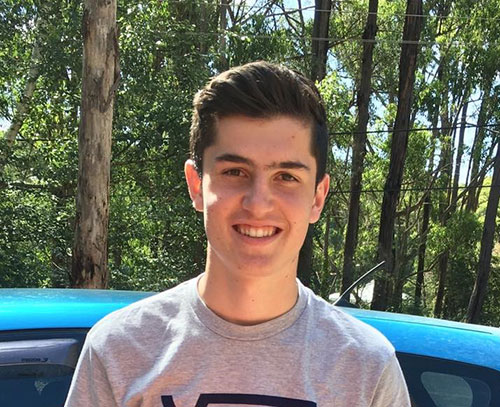
The mysterious Mr Barrett delivers the goods
For Luke Hehir and Isaac Boreham, Mr Barrett was a mysterious figure before he became their Humanities teacher.
Luke recalls, “in our cohort there was this elusive Mr Barrett who was this super cool teacher… I remember when we found out that we had him for Year 9 we were so excited and I just remember thinking, who is this man?”
“This man” was Steve Barrett who became a Teach for Australia Associate in 2013. He had moved from Western Australia to Emerald, east of Melbourne, with big plans for his classes. These plans included writing a 30,000 word novel as a class, employing university-level research and referencing skills, and many frosty, early morning training sessions for a Kokoda Trail trip, which involved carrying weights, hiking with packs and doing runs around the lake.

Isaac remembers the challenge of the work that Mr Barrett set. “It was the first time I’d really done something like that and we were all freaking out because we hadn’t done more than like a paragraph before or referencing.”
It was Mr Barrett’s high expectations that inspired the boys to persevere and triumph in the end. Luke says that while he doesn’t remember too much of Year 8, he does “know what Mr Barrett is like to have as a teacher. Generally in those younger years, a lot of the teachers don’t expect a lot from you and they go easy on you. But for Mr Barrett, you want to impress him and there’s just something about it that he gets you to work hard and gets you into what you are learning so you want to keep learning.”
This experience taught the young men about commitment and the value of feedback to improve and get better. This continued into Year 12, where he taught both boys Geography.
“The main thing that has stood out for me was his work ethic, I remember he said one time, ‘If something was worth doing, it was worth doing 100% or not at all’. That has still stuck with me to this day and I really saw it in a lot of the ways he did things and his approach to teaching. I never felt like he was just doing it because he had to or because it was his job, he was fully committed to allowing us to achieve us what we wanted to achieve,” recalls Isaac.
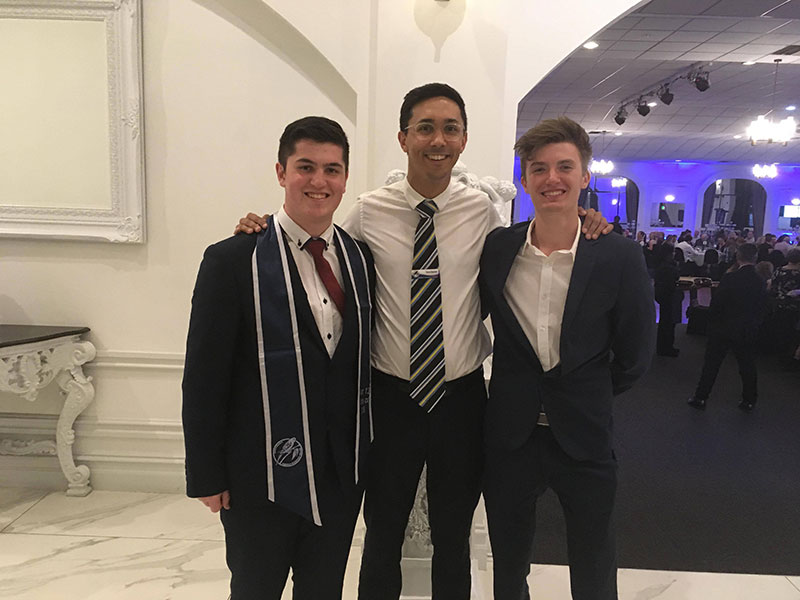
“I could tell Mr Barrett really cared about us and where we wanted to go. We had a lot of discussions about our future in class, Mr Barrett always asked us how we were and where we wanted to go in life.”
After finishing Year 12, that future is close at hand. Luke has plans to study biomedicine and engineering at Monash University, eventually with a goal to work on prosthetics, which are now so advanced that “it’s basically like having a real life arm”.
Isaac is less sure what his future holds, but is enjoying his hard-won driving licence, his new found freedom, the thrill of having a friend get a tattoo of one of his art works. Most of all, the opportunity to “choose what I want to do, who I want to see, who I want to be.”
“In the next 10 years, I want to find a sense of contentment, no matter what I do or who I’m with. I want to travel and experience the world and different cultures. I want to take my art somewhere, do volunteering – I want to give back to everyone who’s helped me”.
Back2014
2014
The Australian Government releases an independent evaluation of the Teach For Australia program conducted by the Australian Council for Educational Research, finding “TFA attracts exceptional teachers…and has a big impact on student performance, teacher quality and teacher retention.”
The Australian Association of Graduate Employers ranks Teach For Australia 19th on the list of most aspirational employers as the only not-for-profit, just below Boston Consulting Group.
Achieving educational equity:
What the research tells us
The Organisation for Economic Cooperation and Development finds that over 35% of Australian Principals receive no preparation for the role. When considering those who did, only 50% deemed the training to be adequate in relevance and quality. In the next year, Teach For Australia will commence the set-up of Teach To Lead as a targeted professional development program for school leaders.
Source Organisation for Economic Co-operation and Development (OECD) (authors Rutkowski, D., Rutkowski, L., Bélanger, J., Knoll, S., Weatherby, K. & Prusinski, E). (2014). Teaching and Learning International Survey (TALIS) 2013 results: an international perspective on teaching and learning. Paris, France: OECD Publishing.
Partner Spotlight
Shell joins TFA with a major gift to help break ground in WA.Learn More
A high school teacher with a cool and mysterious reputation, Mr Barrett is the difference for Luke and Isaac.
“I felt that there were a lot of issues in the education and public policy space which could have a huge impact on life opportunities in the community.”
From the coalface to Canberra
Edwina Dohle had finished her Law degree with a passion for social justice. She wanted to use her skills and qualifications for good. She joined Teach For Australia in its inaugural cohort, and taught at Bundoora Secondary College. After four years of teaching, she felt the need to have an impact on education more deeply – at a federal policy level. In 2014, she moved to Canberra for a graduate program at the Department of Education, and hasn’t left the education policy space since.
What made you join Teach For Australia?
I think TFA offered an amazing opportunity to get right to the coalface of social justice issues in Australia straight out of university. The opportunity to test yourself and develop while doing whatever you can to improve educational opportunities was really compelling.
I’d done Law at university and was pretty uninterested with the kind of Collins Street approach, and the chance to get into the community and work with real people and begin to understand the challenges that they were facing was great.
What led you to the Department of Education?
I felt that there were a lot of issues in the education and public policy space that have a huge impact on life opportunities in the community.
Being able to examine where we are and develop solutions that can actually move that forward, I think is something that is quite unique to the public service. There’s huge impact and real change that happens from advice within the government so I wanted to get involved and learn as much as I could about what that policy making process looks like in practice. Working with the Commonwealth, having that lens across the whole country in a stewardship role in the education space with the states and territories was really interesting.
In 2014 I did two grad rotations through the Department of Education. The first one was in the early learning and childhood space where I worked on the development of an early learning languages app to introduce languages training for preschoolers.
Then I moved into higher education, to consider what the sector would look like in the future and what the government’s role in disruption of tertiary education might be.
Do you think you would be doing what you are now if it wasn’t for Teach For Australia?
Teach For Australia really solidified that education is the foundation stone, and it’s the place where you get the biggest returns on investing your effort and time.
What are your big aspirations and hopes for education in Australia for the next ten years?
I would really like to see the breaking down of barriers between different types of students and different schools. I think there has been an increasing demarcation of different types of education sectors, and the thing we want to do is maximise people’s freedom to pursue whatever is meaningful to them. At the moment, there’s a very strong focus on academic outcomes, which I think sometimes devalues social contributions to a range of different professions. I’d like to see a system that engages individuals to understand their personal strengths and preferences so that they can realise the individual pathway that is best for them.
Back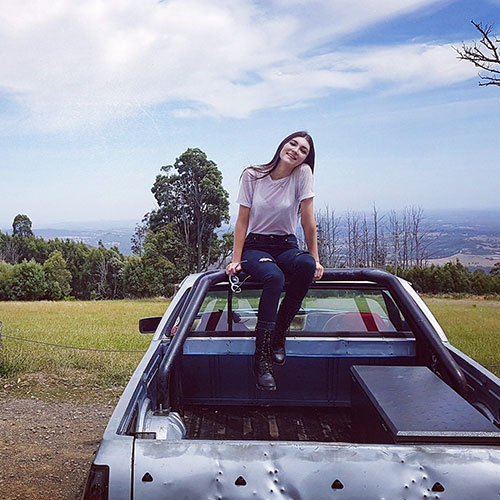
From struggle street to Arts/Law and beyond
Hannah Gandy attended the Pavilion School in the northern suburbs of Melbourne, which is a school for students who have been disengaged or excluded from mainstream education. She studied Year 12 over three years. Encouraged by teachers who pushed her potential, she is now studying a Bachelor of Laws/Arts (Politics) at La Trobe University.
I grew up with a single mum. She raised me and my brother and she had a pretty hard life. She used to work in business but then when she became a single mum she started cleaning. We had it pretty hard when we were little. I remember she used to ride her bike from house to house cleaning because we couldn’t afford a car.
There were periods of time when my family suffered homelessness. When I started school in primary school everything seemed quite normal. I’d grown up thinking that this is how normal families function. In primary school I loved going to school and seeing my friends – I was really engaged. Then in Year 7, I started hanging around bad crowds of people and not going to school.
By the time I was in Year 8, I’d transitioned through three separate schools and that’s how I ended up at The Pavilion School. When I went to that school, I was the youngest person they’d had.
For the first couple of years I wasn’t really attending school. Lots of my friends had got into drugs and even I battled a bit with addiction. It was actually the breaking down of friends’ lives around me that made me start going back to school. It was about half way through Year 10 when one of my teachers started to make a genuine effort with me. She started giving me work from the Distance Education Centre.
I completed Year 12 over three years. In my first year of Year 12, I was taught by Mel Henry (Cohort 2011). She was really supportive and understood that I was smarter than I thought. Although I’d been re-engaged back into education, she gave me a belief that I was actually capable of doing more.
She convinced me to take two university subjects while I was in my second year of Year 12. At this point I wasn’t thinking about going to university, I was just doing it as part of my VCE and I think her pressuring me a bit into tackling uni subjects made me realise that I was smart. In that program, I actually ended up getting the highest mark out of all schools that participated for two Law subjects at La Trobe.
Her influence, helping me realise that I was smart, drove me to get high marks. Mel was helpful in making me way more productive and actually putting the pressure on to do well. I remember being in her class and everything was always a big operation. We had students working on different things at different times and everyone was always really productive. It was like organised chaos every day. Mel showed me it’s cool to be smart. I’d never realised that before I had Mel as a teacher.
That’s how I got my entry into university. I was the only student from the Pavilion School who has ever gone through the process of finishing VCE. At university, I was surrounded by private school kids and even I was a bit shocked when they gave me an award for getting the highest marks. I thought, “Wow, I didn’t think that would happen.”
Since graduating from school, I’ve been working at the Fair Work Commission and at La Trobe University as part of the school partnerships program. We introduce students from disadvantaged schools in the northern suburbs to university and I share my story with them about where I came from and how I got to university. I was also working with the VCE plus program for a while, mentoring students who were taking Year 12 subjects while in uni.
I still work with a lot of the students at the Pavilion School. When they come out to La Trobe, I tell them, “I went to your school and now I’m here.” Sometimes they turn around and say, “I want to go to uni, too.”
Hannah’s teacher, Melanie Henry (Cohort 2011) remembers her well:
I first met Hannah properly in 2015. What I remember most about that year was how willing Hannah was to give my quirky classroom ideas a go. I feel immensely grateful for the trust she placed in me for our class and for her own future.
I could see that Hannah had a lot of potential and that drove me to become quite ambitious with the goals we set.
I left the Pavilion at the end of 2015 but kept in touch. I was so proud to learn that she had achieved her goal of completing VCE and with an ATAR of 80.80 no less! and even better, that she had been offered a place at La Trobe in her first choice – Arts/Law! I cried when she gave her graduation speech – she sent me a video sharing how I had influenced her path (unfortunately I couldn't attend because I was having a baby at the time).
I'm so glad that I have been able to keep in touch with Hannah and watch her grow and progress. I hope that when she goes out and advocates for education, for everyone's right to a high-quality education, that I had a small part in influencing her values and belief.
Back2015
2015
Teach For Australia begins its partnership with Western Australia, placing 13 Associates there in one year. This number nearly triples in the next year.
Associates now earn a Master of Teaching Degree through a newly established partnership with Deakin University.
Michael Briggs-Miller (Cohort 2010) becomes principal of Warracknabeal Secondary College, Teach For Australia’s first Alumnus to do so.
Partner Spotlight
The Sydney Myer Fund, Gandel Philanthropy and Teach For Australia partner to create Teach To Lead.Learn More
Achieving educational equity:
What the research tells us
The Mitchell Institute constructs an index of opportunity that captures the proportion of students who are achieving and those who are missing out across key education milestones and for different demographic groups. Students from low socioeconomic households are significantly more likely to be behind their advantaged peers for each milestone.
Source Mitchell Institute (authors Lamb, S., Jackson, J., Walstab, A. & Huo, S.). (2015). Educational opportunity in Australia 2015: who succeeds and who misses out. Centre for International Research on Education Systems, Victoria University, for the Mitchell Institute. Melbourne, Australia: Mitchell Institute.
“I was the only student from the Pavilion School who has ever gone through the process of finishing VCE. At university, I was surrounded by private school kids and even I was a bit shocked when they gave me an award for getting the highest marks.”
“In my second year in the program I had five positions of responsibility – I was head of the Maths faculty, the Science faculty, on the school council, on the school improvement team and IT coordinator.”
Fast-track teaching program produces Warracknabeal school leader

Teaching is leading
Before applying for the Teach For Australia Leadership Development Program, Lachlan Yeates (Cohort 2011) studied economics and mathematics at ANU with a view towards entering the investment banking or consulting world. That was until he stumbled across a Teach For Australia information session on campus.
“Teach For Australia sounded like the perfect meeting of my moral compass and values,” Lachlan said reflecting on his decision to join Teach For Australia.
Lachlan, like all Associates, was thrown in the deep end and found himself in front of class of young, wide-eyed students at Warracknabeal Secondary College – a school halfway between Melbourne and Adelaide in regional Victoria.
Although feeling out of his comfort zone, Lachlan thrived in the school community and in just his second year in the classroom found himself in a number of leadership roles within the school.
“I enjoyed the teaching but also in particular the leadership work that took place. In my second year in the program I had five positions of responsibility – I was head of the Maths faculty, the Science faculty, on the school council, on the school improvement team and IT coordinator,” Lachlan recalls fondly.
Three short years later, in 2015, Lachlan was appointed as Teaching and Learner Lead Teacher at Horsham College, also in regional Victoria. He believes that there are a number of differences between being a teacher and being in a leadership position.
“Leading teachers are some of the hardest working people in a school because often they have a heavy teaching load, in addition to the leadership perspective. I think the vision is really important, we often find it quite challenging to get people to buy into it – the idea that education can make a significant difference in equity.”
Lachlan says he would recommend going into teaching over a career like consulting, any day. “Even though the money might not be there, I think the education system needs more people who are highly strategic thinkers who can use data to make high-level decisions. So anyone who thinks they have the skill set to do consulting would be going into a field where there are many other people with similar skill sets, whereas in education they have the opportunity to really impress their impact at the school level and broader system level.”
Back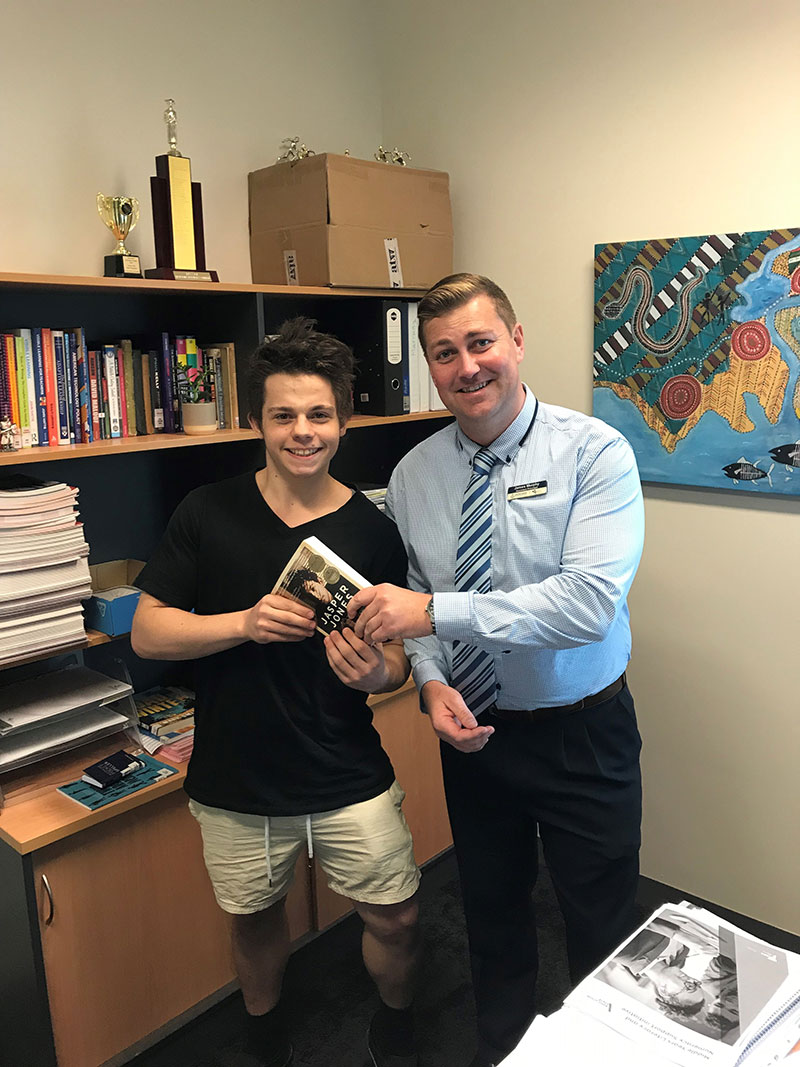
Building the foundations for long-lasting impact and friendship
Teach For Australia alumnus James Murphy (Cohort 2010) and Newcomb Secondary College graduate Daniel Bath have been sharing misrepresented Shakespeare quotes since 2016.
Mr Murphy completed the Leadership Development Program at Horsham College in 2011 and is now Assistant Principal at Newcomb Secondary, where he works with students like Daniel each day. Throughout 2015 and 2016, Mr Murphy taught Daniel Year 11 and 12 English, and was also his year level leader.
The two have maintained a strong friendship.
Interview
Can you tell us what was it like being in Mr Murphy’s class in 2016?
Daniel: In Year 12 there was a lot of doubt and uncertainty about what I wanted to do. English was a class that I always wanted to do well in, and Mr Murphy is the kind of teacher that inspires you to be there, and keeps pushing you through despite the stresses and despite everything else that goes on in Year 12.
Mr Murphy, what do you remember about having Daniel in your class that year?
Mr Murphy: He was a lot of fun to teach: he was very witty, engaged, cheeky. He was somebody who always showed an immense amount of natural potential. Pretty early in the piece, I knew I was observing someone who could think critically and creatively, write analytically, somebody who had and still has a lot of potential. It was a matter of working with Daniel to have a lot of fun – that’s a huge priority for anybody working in education – and working with him to realise those potentials that he did have.
Do you think Mr Murphy had an impact on what direction you wanted to go after school?
Daniel: I think he inspired a lot of students to get the best out of themselves. He’s always a teacher who wants you to do the best that you can, and that means that we wanted to do the best that we could for him. He has a passion for teaching that really carries through to his students. It had an effect on me and made me want to give the same back – so that’s why I’m now going through to become a teacher myself.
Mr Murphy, do you feel like you had an influence on Daniel?
Mr Murphy: Daniel is a very strong person and a proud person and won’t admit that he had a couple of difficult years in Year 11 and 12. He’s a credit to himself in how he managed that, how he was able to juggle the rigors of Year 12 with fairly sustainable part-time work commitments, to be financially independent. He’s a reasonably handy footy player and enjoys being physically fit so he was able to manage his time in a way that would enable that as well.
It seems like you had a pretty good relationship during school, what is the relationship like now?
Mr Murphy: I probably get a fairly witty text message, maybe a misrepresented Shakespeare quote, maybe once a fortnight. Then my challenge is to come up with a suitably witty reply!
Daniel: I’ll usually send through updates about my reading progress on Jasper Jones.
Mr Murphy: Yeah, that’s right – it’s usually about one page every six months!
Where do you both see yourself in ten years?
Daniel: Hopefully, if things go to plan, I’ll be a few years into my teaching job, teaching subjects like PE and Science, having a really fun and easy going job that I enjoy because teaching is something that I’m passionate about and something that I really want to see myself doing.
Mr Murphy: Quite possibly working in the same school as Daniel! That would be an interesting chapter to the story, wouldn’t it? I still love teaching and working in education. At the moment, I find myself not working as much as a classroom instructor but more as an administrative leader behind the scenes with my role being the Assistant Principal. Perhaps in ten years’ time I would like to be having broader oversight for a school community and being as involved with teaching and learning as I can.
Back2016
2016
The Australian Government reaffirms its support of Teach For Australia with another multi-cohort agreement.
Teach For Australia launches its Teach To Lead program, with its first cohort of Fellows.
Ranked 36 among the 2016 GradAustralia's Top 100 Graduate Employers, the only non-profit on the list.
Teach For Australia launches its Ambassador program with 29 Ambassadors from across the country.
Achieving educational equity:
What the research tells us
The Centre for Education Statistics and Evaluation finds that if Australia could reduce or eliminate the gap in educational outcomes between students from low socioeconomic and high socioeconomic households, the susceptibility for social disadvantage to be passed down the generations would decline by up to 40%.
Source Centre for Education Statistics and Evaluation. (2016). Income mobility in Australia. Learning Curve, 12.
Partner Spotlight
The Paul Ramsay Foundation and Teach For Australia partner with the biggest gift in our history. Learn More
“In Year 12, there was a lot of doubt and uncertainty about what I wanted to do. It would have been challenging trying to get me to motivate myself.” Now, Daniel is studying teaching himself, occasionally texting his former teacher misrepresented Shakespeare quotes for fun.
Celia and fellow Alumnus Adam Ross launch Teach in Community across the Wimmera region in Northwest Victoria, including TFA partner schools in Horsham, Warracknabeal and Ararat, offering local teachers peer observation, feedback and half-day training sessions.
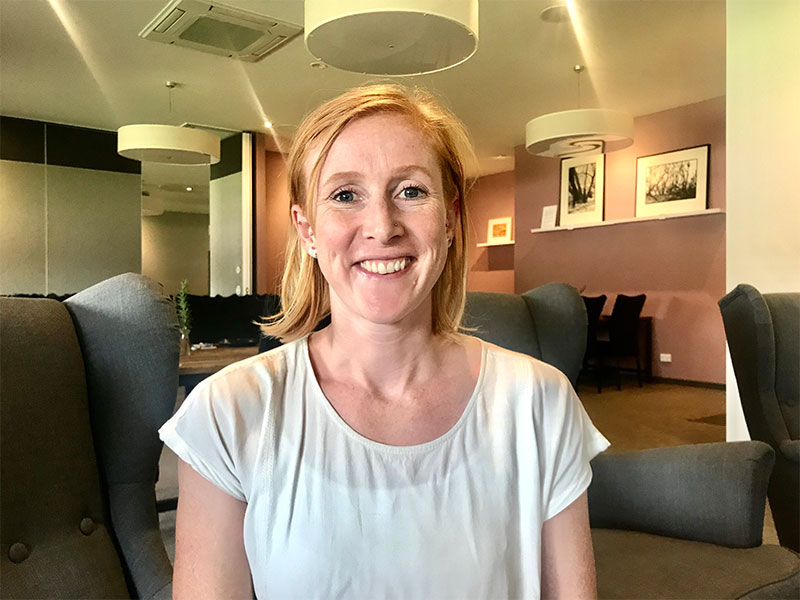
There’s always room for improvement
Inspired by a Teach For All global conference in New Zealand in 2015, Celia Fairley (Cohort 2013) and Adam Ross (Cohort 2012) noticed the synergies between the schools they were working at – both in the Wimmera region in Northwest Victoria - where often principals seemed fuelled towards progress by competing against each other. They decided to establish a program that would allow local teachers and school leaders to trade competition for collaboration, inspired by the mentoring and support they were able to benefit from as part of Teach for Australia.
In 2016, Celia and fellow alumnus Adam Ross worked together to launch Teach Towards Excellence (now called Teach in Community) as a way to enhance collaboration across schools in the Wimmera.
“Competition is great, but it only takes you so far,” she said.
When reflecting on her motivations for starting Teach in Community, Celia said, “The time when I felt I was learning and improving best as a teacher was actually in my first two years when I was doing the Leadership Development Program, because I had a clinical specialist, an in school mentor and a training and leadership adviser in my classroom all the time, offering really good feedback and helping me to set clear goals and be accountable.”
“We saw ourselves as facilitators, but the group itself had to be a community.”
Both Celia and Adam recognised that as teachers they still had a lot to learn, and that many others in the region wanted to continually improve.
Celia and Adam launched Teach in Community across the Wimmera region, including with TFA partner schools in Horsham, Warracknabeal and Ararat, offering local teachers peer observation, feedback and half-day training sessions. A key aspect of the program was to empower peers with the tools they needed to help each other improve.
“We saw ourselves as facilitators, but the group itself had to be a community.”
The program was particularly essential in a regional area such as the Wimmera, where it’s harder to attract teachers and leaders in schools, and access to professional development is harder to come by.
“In terms of solving educational inequity, I don’t think I’m moving mountains. But I like to think that I’m having an impact,” she said.
Celia is now teaching Year 7 and 8 at McKenzie Creek, one of Horsham College's alternate programs that helps to re-engage students with learning.
Back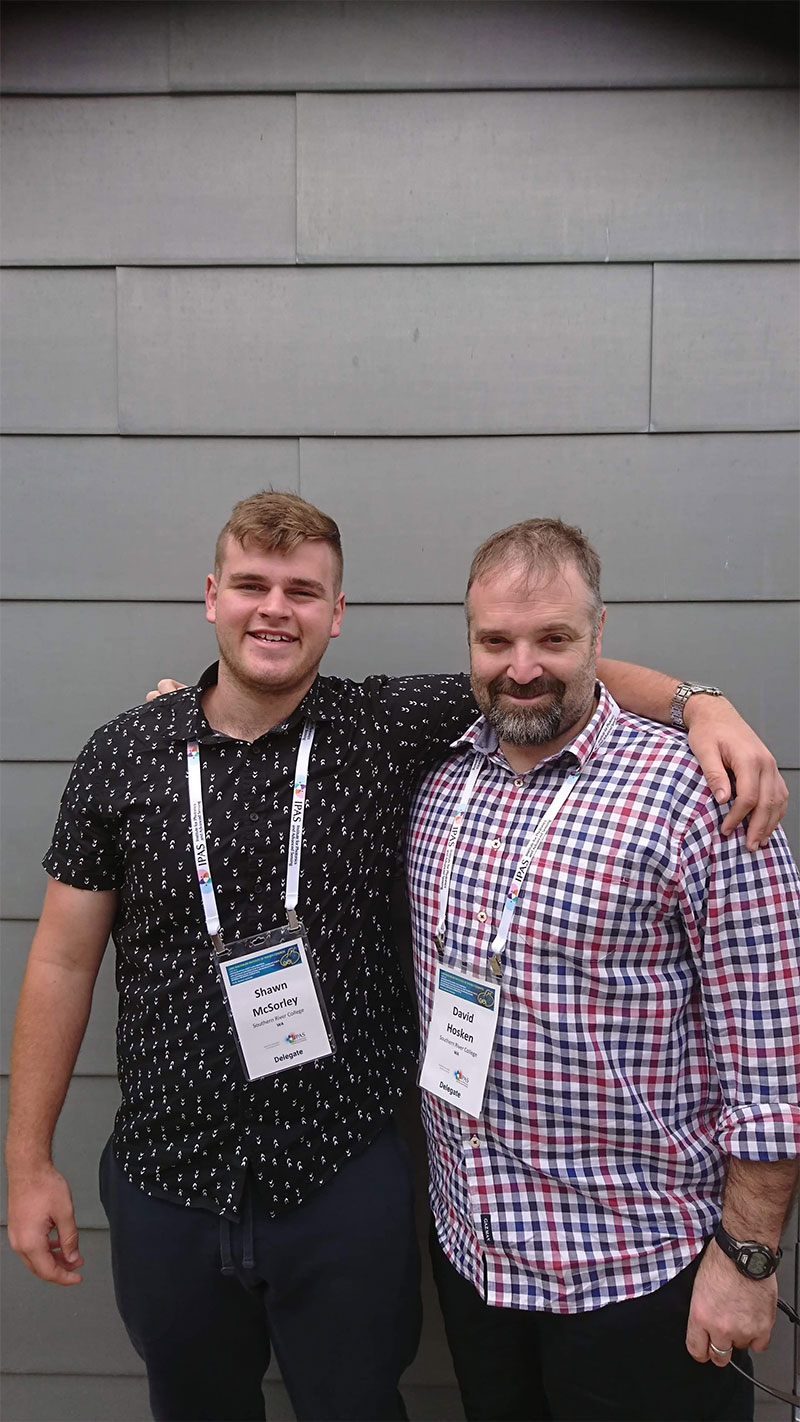
Building bonds that will last forever
In Year 9, graduating high school seemed unlikely for Shawn McSorley. In 2018, he graduated as Dux of Southern River College. Over the past four years, Shawn has been taught by now Teach For Australia Alumnus David Hosken (Cohort 2015).
In Year 11 and 12 Dr. Hosken worked closely with Shawn in physics. Shawn ended up being the top physics student in both years, and was also involved in the school’s robotic program and went to Sydney to compete in the 2017 and 2018 robotics competitions. Shawn became determined to stop losing marks in tests and would openly seek feedback on how he could improve his answers – a vast improvement from the disinterested student in Year 9.
We sat down with Shawn and Dr. Hosken to learn more about how their relationship flourished at Southern River College.
Tell us about yourself, Shawn…
Shawn: I started off in Gosnells, so I was there for a few years, I went to Kindergarten in Gosnells, then I moved over to Kalgoorlie and I lived there for another seven years and did most of my primary school years. I then moved to Albany for two years, then I came back to Gosnells, and I’ve been here ever since.
What was it like being in Dr Hosken’s class last year?
Shawn: I’ve been taught by Dr Hosken since Year 9. I remember walking in on the first day and saying, Who’s this? I didn’t see him here last year. Little did I know that he was going to inspire me so much. That year, he would do everything he could to get the class to engage in what we were learning and doing. At the end of it, I actually had a solid idea of where I wanted to end up in my future.
In Year 10 (2016) I didn’t have him as a teacher, but then I was preparing for ATAR, so I was going to him whenever I could to ask him questions about the content for the classes next year. In Year 10, we were doing advanced content to get us prepared – Dr Hosken actually did us all a favour and he was talking to our Year 10 Science teacher (Steph Ludekens) and getting her to basically prepare us for the workload in ATAR, which was really good.
In both Year 11 and 12 he was teaching us physics and basically he just kept me going, he wouldn’t let us make any excuses, it was always ‘you just have to do it’, you just have to follow the rules. In the end it’s helped me phenomenally.
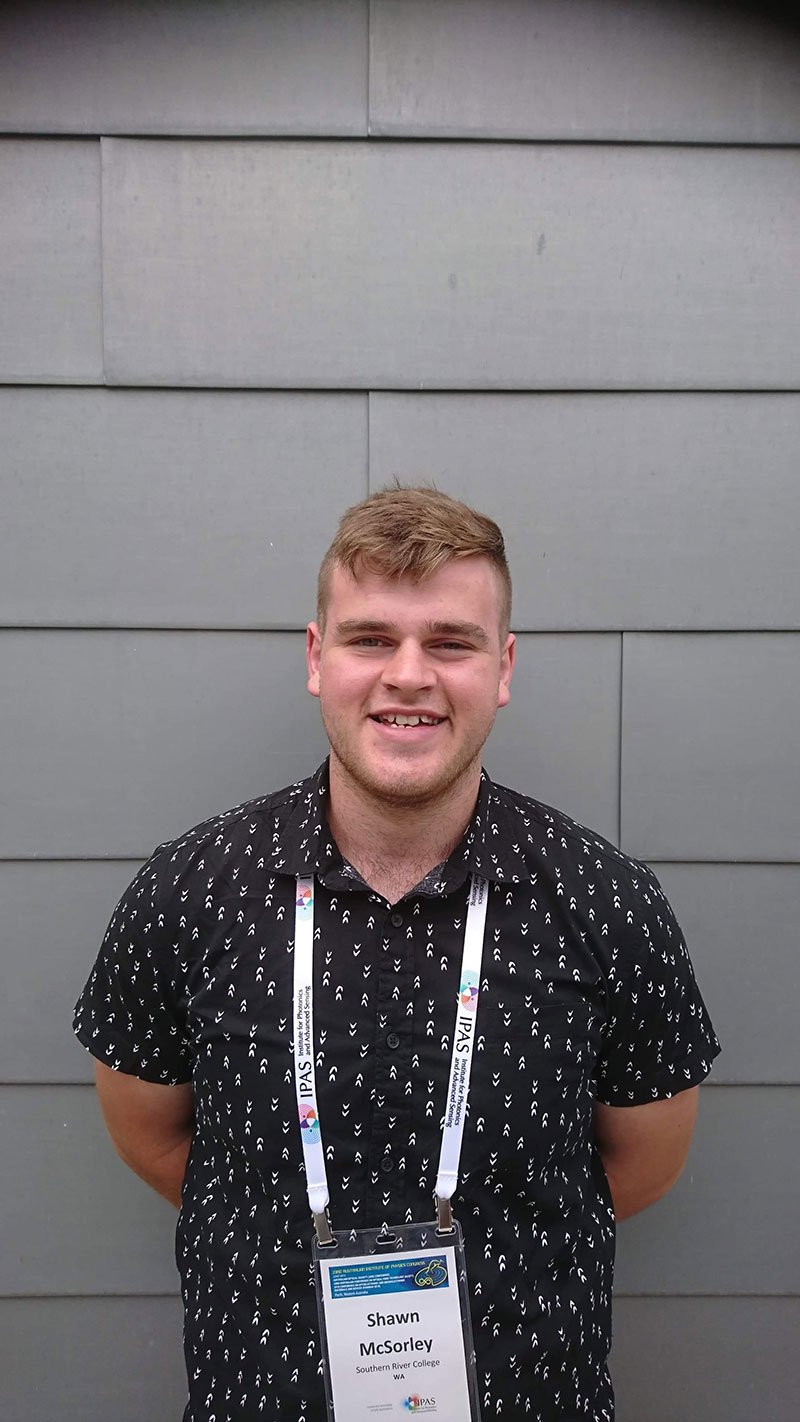
What was his teaching style like?
Shawn: Most people when they walk in the class would say it’s boring (jokes!). He gives you the content, he makes sure that everyone understands and doesn’t let anyone get left behind. He’d always say, ‘if you don’t understand, put your hand up and ask me’. And people would do it and he’d take them through it again, kept going through it, until we got it. It was like that for the entirety of the past three years. We also did a robotics competition and there I saw Dr Hosken’s true commitment because we had some pretty late nights and he was just there problem solving and he helped us get there and we came fifth in the first year. It would have been difficult to do it without him and his commitment.
Dr Hosken, what do you remember about having Shawn in your class?
Dr Hosken: In Year 9 Shawn was probably a little bit lost, he didn’t really know which way to go and he was probably a little bit challenging with some of the others in that class, but I always knew that he wanted to learn. Year 9 was a tough year for me, looking back. There’s a lot of students like Shawn who I’ve taken through to Year 12, and it all started back then. Shawn in Year 10, it was one of those years where we’d chat occasionally. Otherwise, that was his year working with Stephanie Ludekens, another TFA Associate.
The last couple of years, I’ve really worked with Shawn and his family as well, and I have more of a sense of who Shawn is. Shawn is underselling himself a bit, some of the challenges he’s had outside the classroom and I can probably relate to that as well because I’ve had a similar upbringing as well. But Shawn’s never let anything hold him back and he has a passion for learning.
Shawn, what impact do you think Dr. Hosken has had on your life outlook or pathway?
Shawn: The way he has prepared us for the future and being out of school – being out of school and being able to learn by ourselves and actually just take initiative. Originally, I kind of wanted to be an engineer in Year 9, but he inspired me to look at a physics pathway, just by showing me where it can take you and what you can learn by doing it. And also just how to live life, he’s given me a really good outlook on life, on where I can go and what I can do.
What are you most proud of?
Shawn: Just making it to here really. It was a very long and difficult road getting here. Just being able to stand here and say I completed that challenge just makes me proud of myself – knowing that I could complete the challenge.
Where do you hope to see yourself in ten years, what are your goals for the future?
Shawn: In ten years I’d like to be adding to my field of study, I reckon that’d be a pretty good honour. I definitely want to have my first degree at least and hopefully have a masters or a PhD. So in ten years, if I’m adding to my field and if I’ve got lots of good friends around me and a good work experience that would be really good.
Any advice you’d give to others in your position?
Shawn: Don’t forget to celebrate the teachers, because without them there wouldn’t be any accomplishments. Without Dr Hosken, without Ms Ludekens, without all of the other Associates and all the other teachers, we most likely wouldn’t be where we are.
Dr Hosken: For me, I’m moving back to Adelaide shortly, but I’m leaving here knowing that these students are going to contribute to those fields. The real turning point for me with Shawn was an interview with his grandma, she was really proud to get to explain to me that he wanted to do physics, she was really proud. It’s really good to see Shawn as a student, see him as a leader, the way you work with your family. Sadly, when he dressed up as me, one of the student’s Dads couldn’t tell the difference between me and Shawn. So, Shawn could turn out like me – we’ll see how it goes.
Back2017
2017
Teach For Australia begins partnership with Tasmania, placing 13 Associates at nine partner schools in the first year.
The Australian Government releases an independent evaluation of the Teach For Australia program, finding that “Teach For Australia is substantially delivering against the Australian Government’s key objective of placing high-quality teachers in schools serving low socioeconomic communities to meet specific skill requirements, for as long as possible.”
100th school partners with Teach For Australia.
Partner Spotlight
Teach For Australia begins operations in Tasmania for the first time with The Baker Foundation’s support. Learn More
Achieving educational equity:
What the research tells us
A Grattan Institute report reviews the research on the extent of student engagement and disengagement in Australia, and what works best in creating positive learning environments. The findings point to a widespread issue of low-level passive disengagement and disruption, experienced most severely in schools serving low socioeconomic students.
Source Grattan Institute (authors Goss, P. & Sonnemann, J.). (2017). Engaging students: Creating classrooms that improve learning. Melbourne, Australia: Grattan Institute.
After a particularly disruptive Year 9, graduating didn’t seem even close to a possibility. Shawn will go on to become Dux of his class.
"I can see through my experiences with Teach For Australia that a lot of specialist maths jobs can be hard to staff and there’s often a high turnover in low SES schools.”
Emma begins her two year Impact Initiative through Teach To Lead, which is “about redefining what success is in terms of post school pathways, focused on employment and training post high school.”
Continuing to contribute the education system after completing the Leadership Development Program
As he approached the end of school, Tal Ellinson (Cohort 2015) wasn’t sure what he wanted to do. He started Arts/Law before jumping to an Arts/Science degree. During his time at university, Tal gained an invaluable amount of experience in informal education – he was a leader of a youth movement, debating coach and mathematics tutor.
The more he worked with a variety of children, the more interested and passionate he became about education. This ultimately led him straight to Teach For Australia.
After completing the two year Leadership Development Program, Tal continued to contribute towards addressing educational disadvantage by becoming a VCE presenter for Edrolo – an online platform designed to provide students with engaging, informative and comprehensive presentations to help them prepare for VCE and HSC exams.
You began working with Edrolo in 2017, can you tell us a little bit more about how you got involved with them?
Throughout my two years in the Leadership Development Program I taught Specialist Maths at Mill Park Secondary College in Melbourne. I developed resources and got interested in "flipped learning" through my Deakin Master's research project. I started making videos for my classes, trying to make it more interactive and engaging for the students.
Towards the end of my second year at Mill Park, Edrolo came in and shared a presentation with the school. I was really intrigued with what they were doing so I raised my hand and asked if they had a presenter for Specialist Maths. At the time they didn’t have anyone that presented Specialist Maths workshops, so I followed up with an email asking if they wanted to team-up and was then invited for a chat, which ultimately turned into a job interview.
Can you tell us about your work with Edrolo?
Edrolo Presenters are generally people who work full-time for schools and outside school hours they partake in contract work with Edrolo – it was the same thing for me. I became an employee for Edrolo, helping to project-manage their courses. We also agreed that I would be a Specialist Maths presenter. After a while Edrolo approached me and asked if I wanted to do Maths Methods as well, so I did.
My work at Edrolo was interesting. I was also recruiting and reviewing teachers and reviewing courses, so I had a decent amount of time to learn what makes a good presenter. I was part of discussions at Edrolo about updating courses, what makes a good video, how long it should be, etc. I felt like I was constantly developing my skills throughout the year working there.
What is flipped learning?
Flipped learning is kids learning at home beforehand and then come to class to practice problems at school. It's the idea behind Edrolo's videos. Khan Academy is another example - it's widespread now. In theory, students can watch the videos at home beforehand. Not all teachers use it this way - usually they're used as extra support.
In my paper through my Master's, I found that results for flipped learning are mixed so far. It depends on students and contexts. For the motivated kids, the videos were quite good. For the other students, they weren't necessarily as successful. They needed more support - and maybe more videos at their level would be better.
In environments where not many kids are doing a lot of homework, they're not watching the videos at home. At the school where I worked, we watched them in class at the students' own pace. The more advanced students can get farther ahead than they usually would on their own, which can free up the teacher spend more time with the students who are struggling. More research is needed on how flipped learning can work better in various contexts.
How has working at Edrolo helped keep you connected to Teach For Australia’s vision of an equitable education system in this country?
With Specialist Maths, there’s a small cohort around the state (around 4,500 students). I can see through my experiences with Teach For Australia that a lot of these jobs can be hard to staff and there’s often a high turnover of maths teachers in low SES schools. I felt like if I could provide quality explanations, both from a maths and VCE side, then I could really provide that support to a large group of students.
Do you think you would be doing something similar if you had not joined Teach For Australia?
No, I don’t think so. When I started the Leadership Development Program I had a great opportunity and was placed in a Specialist Maths class. Because of this opportunity, it enabled me to experience creating resources – I was able to break the course down into individual skills and it also enabled me to make the content achievable for the students.
Where do you see yourself in ten years?
At this stage, I still see myself experimenting and getting a few different experiences. I’ve been writing a fantasy novel that I’m trying to finish, so I’d like to finish that. I also really enjoy teaching and I have missed the classroom and the social environment. I can definitely see myself going back into the classroom at some stage in the future.
Back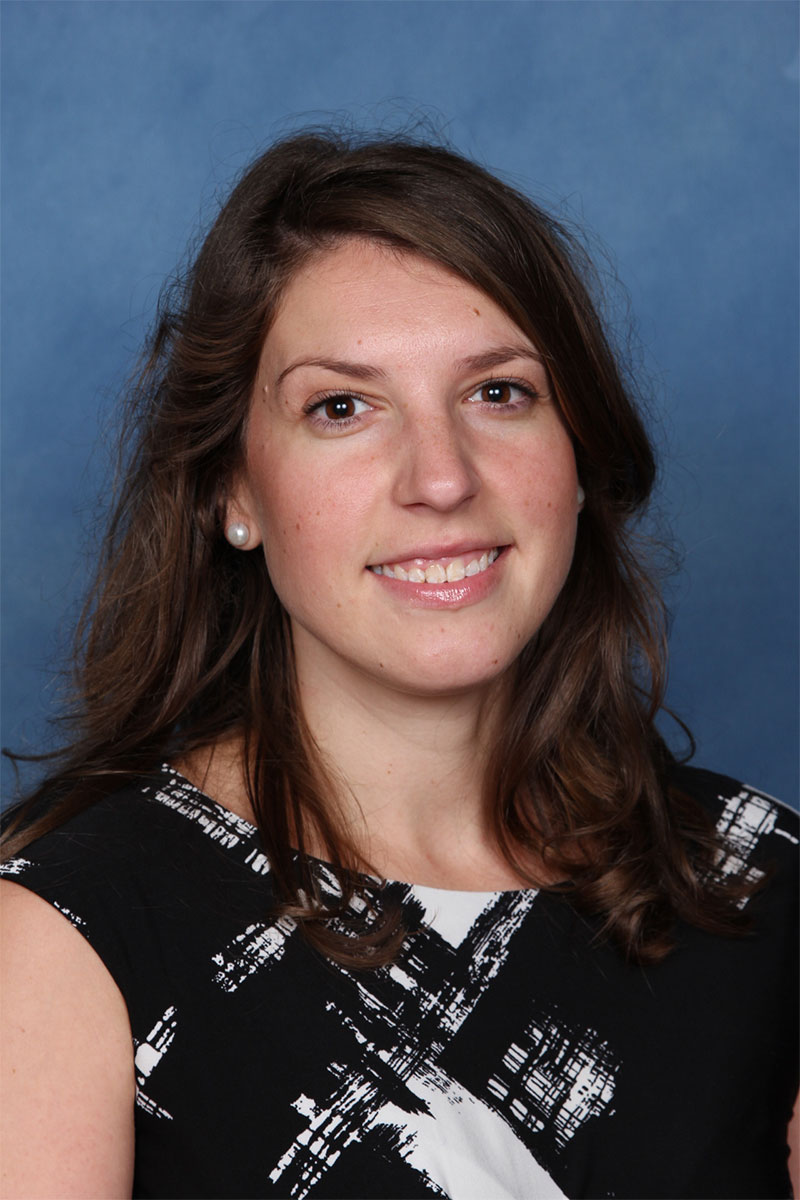
Redefining student success
Emma Lindsay is Deputy Principal at Sarah Redfern High School. She was a Cohort 2017 Fellow of Teach For Australia’s Teach To Lead program, a professional development program for teachers with formal leadership roles in schools serving low socio-economic communities.
I started teaching in 2009, when I had a big career change – I used to be a publicity manager at a record company. I’m currently in a Deputy Principal position but I have this really long job title – Manager Learning Design Innovation – which essentially means that I look after all current staff professional learning, beginning teachers, the technology pedagogy, senior students, among other responsibilities.
When I came into teaching, I knew that I wanted to work in a hard-to-staff school, in a disadvantaged area. That was one of the things that really appealed to me about Teach To Lead: it’s a leadership program focused on developing leadership within those that were most committed to working with our most needy communities.
Through my Impact Initiative (a Teach To Lead component in which each participant designs and implements a long-term project with the aim of raising student achievement) I looked to redefine what success is in terms of post school pathways through strengthening the perception and calibre of our transition stream, which is focused on employment and training post high school. For our school, this meant valuing success outside of attending university. A lot of teachers only really value those statistics, so internally we had a lot of marketing around the school and constantly sharing success stories of students who have transitioned into apprenticeships or traineeships, and sharing stories of those students five years down the track.
I believe in empowering staff and students because that shared vision will not translate to successful outcomes to the kids if it’s a one-person show.
Principals and senior leadership/management definitely need to be at the chalkface with their colleagues – they have to lead by example. You can’t just delegate everything, you need to be able to live and breathe it and generally talk about it and form the relationships with the staff and the kids so that they build trust at all levels.
This is my tenth year at Sarah Redfern and I feel so connected to the kids and community. I’m at the point where in ten years I would love to be the principal of my own school but it would definitely have to be in a low SES area. I would love to go regional in New South Wales.
It’s the stories in low SES communities that really draw me in. You can actually see the impact. It’s so exciting when you bump into former students with their families and they’re telling you about what they doing for work. With the Impact Initiative that I worked on, it spoke to my heart because we are talking about life beyond school – teachers get so obsessed with the 13 years that students spend in our institution – but life is so much more than the bricks and mortar. If you can impact the way these students raise their own children; be a good person and give back, then that’s the only way that we can break cycles.
How could you work anywhere else?
Back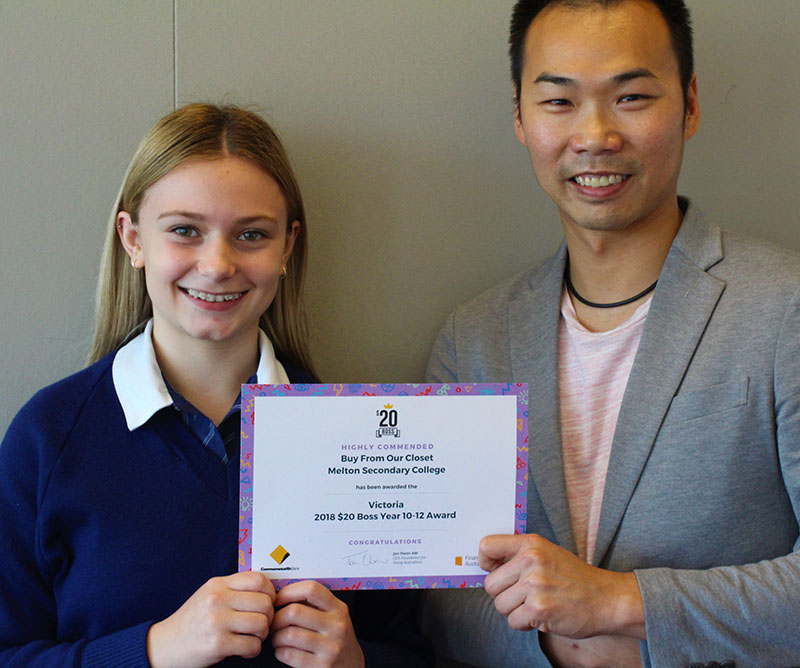
Exceeding expectations
The right combination of a driven student and a teacher willing to push through and beyond the curriculum, can produce remarkable results.
Dominique-Dee Jones is currently a Year 11 student at Melton Secondary College, a Year 7-12 state school located in Melbourne’s West. In 2018, Dominique enrolled into Business Management which was taught by Teach For Australia Alumnus Jason Toh (Cohort 2016).
Despite being a Year 10 student, Jason recognised that Dominique had the potential to perform at a high level and they formed a strong connection through Jason’s enthusiastic nature in the classroom.
“He’s a very engaging teacher and the way he conveys the content, he always manages to bring energy into the classroom,” Dominique remarks when asked about Mr Toh.
Had it not been for Jason’s drive and guidance, Dominique believes that she would not be where she is today.
“When I came into the year, I wasn’t really involving myself in any extracurricular activities outside of school or doing as much as I could to improve myself,” Dominique says of 2018. “Mr Toh really pushed me to believe in myself and that I do have the knowledge and skills to take part in programs for high achieving students.”
Jason understood that Dominique had the capability and work ethic to perform well at school. But he also believed that he could push her to further her learning.
“Extending a student like Dominique within the curriculum is possible but it was clear she was capable of learning outside the curriculum,” says Jason.
Jason submitted Dominique’s business idea from a school assessment task as an entry into the ABCN “Entrepreneurs Unearthed” Program: a competition and mentoring program that aims to uncover entrepreneurial talent among secondary students. Not only was Dominique one of 20 participants selected from across the state, she eventually qualified as one of the five finalists.
Still Jason added that, “It’s not just me dumping a lot of work on her. It’s more of a reciprocal relationship where I see the energy and effort she puts into her work and that drives me to find more ways to extend her learning.”
In that same year, Dominique also received a “Foundation for Young Australians $20 Boss Award” for starting and operating a successful small business. In addition, she was admitted into the University of Melbourne’s “Kwong Lee Dow Young Scholars program” and was elected the sole student representative of Melton Secondary College’s school council.
Reflecting on her accomplishments, Dominique shared that, "By participating in these programs and competitions, I'm most proud of allowing myself to open up and actively try to enhance my learning opportunities, which was of course with the help of Mr Toh. I am exceptionally grateful for Mr Toh's continued belief in me."
Jason believes that, “A student’s limitation can sometimes simply be the teacher’s view of what is possible.”
Back2018
2018
Teach For Australia partners with ACU to deliver a Master of Teaching (Secondary) (Professional Practice), in a fully integrated academic and employment based program marking a bold innovation in teacher training.
Teach For Australia launches its enhanced school Mentor Development Program, thanks to the generous support of the William Buckland Foundation.
For the first time, Teach For Australia places the majority of Associates (54%) in regional and remote schools.
Partner Spotlight
The RE Ross Trust partners with Teach For Australia. Leanr More
Achieving educational equity:
What the research tells us
A report by the Public Education Foundation reveals that growing educational inequality has cost Australia $20.3 billion over a six year period (2009-2015). This is equivalent to 1.2% of GDP.
Source Public Education Foundation (author Hetherington, D.). (2018). What price the gap? Education and inequity in Australia. Sydney, Australia: Public Education Foundation.
“I hope to become a practising lawyer. I want to see myself continue to take opportunities and push myself further, and not to just stay in the one spot and be comfortable with things. I just want to try different things to learn even more.”
At the CSIRO, Alisha believes she can have a broader impact across many schools and that she can counter some of the systemic issues of discrimination, including encouraging Aboriginal and Torres Strait Islander participation in science.
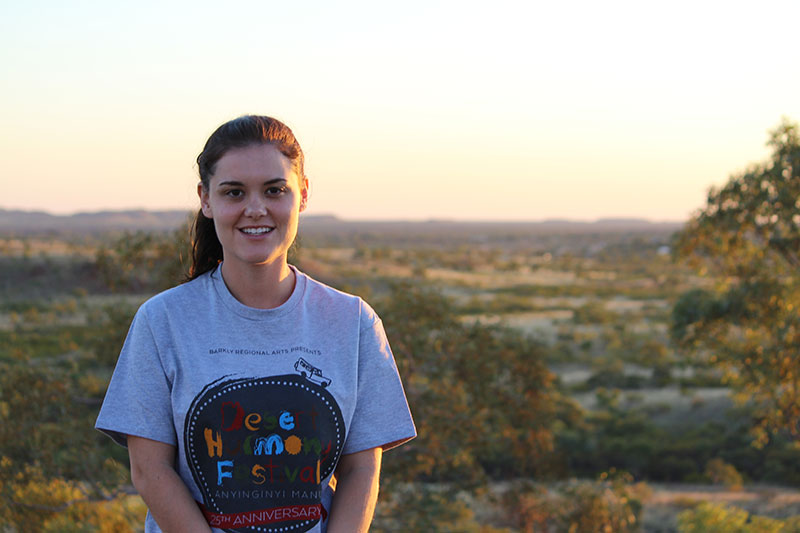
Making a difference at the top end
As an Associate, Alisha King (Cohort 2015) taught in the Northern Territory, where she developed her passion for Indigenous Education, something she continues in her new role with the CSIRO, where she works in the Indigenous STEM Education Project.
“Our objective is to develop resources and train teachers to deliver science inquiry lessons with a traditional knowledge focus. The program develops teacher capacity and confidence to include Aboriginal and Torres Strait Islander Peoples perspectives. Aboriginal People and Torres Strait Islander People are Australia’s first Scientists. From intricate knowledge of ecosystems to more complex development of resources, the abundance of scientific research supports that the scientific process of inquiry was thriving in Australia long before European contact.”
Working with CSIRO is a natural fit for Alisha following the Leadership Development Program, as “they do a lot of evaluation, they have a heavy focus on data and impact, as does Teach For Australia. The program has data backed results to show it improves engagement and achievement of Indigenous and Non-indigenous students ”
In this role, Alisha believes she can have an impact across many schools and that she can assist in building respect and understanding for Australia's First Peoples.
“I would say that with my work for TFA at Nightcliff middle school was what interested me in Indigenous education, my first class was 45% Aboriginal and 5% Torres Strait Island students. I learnt so much from those students and felt motivated to be apart of a program which worked towards better outcomes for those students, and all students”
She is excited about the CSIRO program and the potential it has to improve Indigenous students’ engagement in school and in particular in science. The program seeks to build a pipeline of passionate students who are equipped to share their knowledge with others and take up the jobs of the future.
Alisha champions her time as an Associate teaching in Darwin. “Teach For Australia harnessed my passion for Science and uncovered my passion for education.” Going through the program gave her exposure and understanding of some of the hard issues that education in Australia is facing. Alisha remains focussed and passionate about continuing to understand more about Educational Disadvantage and seeks to work in fields that continue the work started at Teach for Australia.
“I don’t think I’d be where I am today without Teach For Australia. The people I’ve met throughout the program are the most incredible, focused, dedicated people that I know.”
Back2019
Teach for Australia turns 10!
What's next?
A lot can happen in a decade. When Teach For Australia launched ten years ago, it was already known that there was a three year school achievement gap between the most disadvantaged students and their more privileged peers.
Despite the tireless work of so many people across the education sector – including by school leaders, teachers, students, communities, parents and more - student achievement in Australia has declined over the past decade. The latest results from international testing performed by the OECD show that for reading and mathematical literacy, the proportion of top performing Australian students is declining while the proportion of low performing students is growing. This trend has begun to show for scientific literacy too.
Over the past ten years, we’ve seen application numbers for Teach For Australia’s Leadership Development Program continue to grow, with over 11,000 people applying to dedicate themselves towards helping to achieve an Australia where all children, regardless of background, achieve an excellent education. So far, we’ve been able to add 831 Associates to teach across Australian classrooms where they are most needed, impacting more than 230,000 students.
So, as part of our Ten Year Anniversary campaign, we’re asking:


